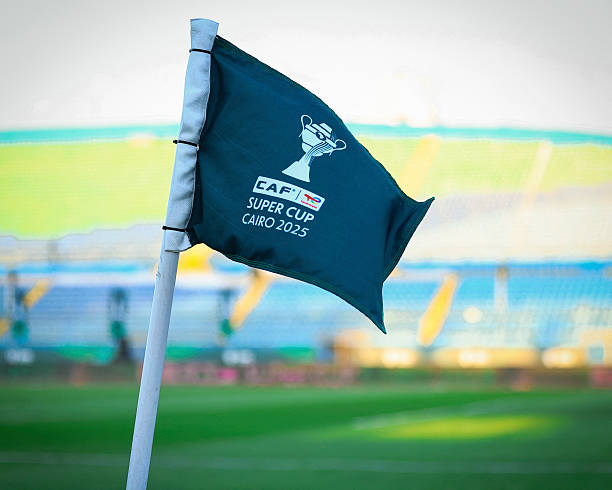The Confederation of African Football (CAF) has officially confirmed the dates and venues for the upcoming 2026 FIFA World Cup playoffs, which will determine Africa’s final representative for the global showpiece.
The mini-tournament, featuring four African teams comprising Nigeria, Gabon, Cameroon, and the Democratic Republic of the Congo, will take place from November 13 to 16, 2025, in Rabat, Morocco. The playoff winner will advance to the intercontinental playoff, where they will compete for Africa’s 10th and final spot at the 2026 FIFA World Cup.
Key Fixtures and Venues
According to CAF, the semi-final matches will be played on Thursday, 13 November, at two venues: the El Barid Stadium and the Prince Moulay El Hassan Sports Complex in Rabat.
In the first semi-final, Nigeria will face Gabon in what promises to be a thrilling contest between two attack-minded sides. The match is scheduled to kick off at 5pm local time.
The second semi-final, set for 8pm, will feature Cameroon taking on the Democratic Republic of Congo (DRC) — a heavyweight clash between two of Central Africa’s most competitive football nations.
The final will take place on Sunday, 16 November, at the Prince Héritier Moulay El Hassan Stadium in Rabat. The victorious team will earn the right to represent Africa in the intercontinental playoffs, a crucial step toward securing a World Cup ticket.
CAF also confirmed that a draw will be conducted on Thursday, 30 October, to assign official home and away designations for the semi-final fixtures, though all matches will be played in Morocco.
High Stakes for African Giants
For Nigeria’s Super Eagles, this playoff offers a chance at redemption after a turbulent qualifying campaign that saw them finish second in their group. Coach Finidi George’s side has shown flashes of brilliance but struggled for consistency, and the fixture against Gabon presents both a challenge and an opportunity to reassert their continental dominance.
Gabon, led by star forward Denis Bouanga, will enter the tournament with confidence after a strong finish to their qualifying group. The Panthers’ dynamic style of play could trouble Nigeria, especially on neutral ground.
Cameroon, a World Cup regular, will look to maintain their proud tradition on the global stage. The Indomitable Lions, under coach Rigobert Song, have mixed youth and experience, and will rely on striker Vincent Aboubakar and goalkeeper André Onana to lead the charge.
Their opponents, the DR Congo Leopards, are equally determined. With players like Yoane Wissa and Chancel Mbemba, DRC possess both strength and flair, making their clash with Cameroon one of the most anticipated matches in African football this year.
Morocco Ready to Host
Morocco, Africa’s World Cup 2030 co-host and semi-finalist in the 2022 edition, has once again been chosen as the neutral host for this decisive playoff. CAF cited the country’s “world-class infrastructure and logistical readiness” as key reasons for the selection.
The Royal Moroccan Football Federation (FRMF) has confirmed that both stadiums in Rabat are ready for the high-profile matches, with ticketing and fan arrangements already underway.
Path to the World Cup
The winner of the Rabat mini-tournament will move on to the intercontinental playoffs, where they will face a team from another confederation — likely from Asia, CONCACAF, or Oceania. That match will determine whether Africa secures an additional spot at the expanded 2026 FIFA World Cup, which will feature 48 teams for the first time.
CAF’s decision ensures a competitive and transparent process, giving four of the continent’s strongest teams one last shot at qualification.
As the countdown begins, anticipation is rising across the continent. With powerhouse nations and emerging challengers all vying for a single ticket, the Rabat playoffs promise to deliver drama, intensity, and the very best of African football.



